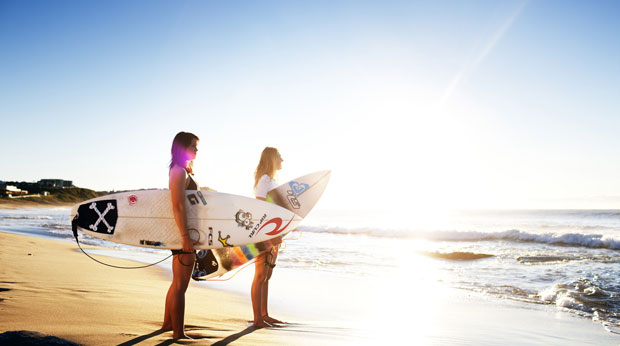 The weather is warming up and with that many of us start to increase how much we socialise with friends and family.
The weather is warming up and with that many of us start to increase how much we socialise with friends and family.
Drinks after work, BBQs, dinners, weekend lunches at the local pub, sporting events, and even relaxing at home with a drink or two are common. We all like to enjoy ourselves and in the lead up to the festive season, it’s easy for the amount of alcohol we consume to increase.
But what happens when the occasional drink becomes a little too frequent?
By Dr Jillian Millar
Australia is well known for its drinking culture and laid-back lifestyle “no worries mate,” “she’ll be right.”
But how do we draw the line between enjoying a few drinks and problematic drinking?
If you find yourself thinking you need a drink rather than simply wanting one, this might be an indication that your drinking is heading towards the problematic side.
Or if you can’t remember the last alcohol-free day you had, things could be getting out of your control and it might be time to reassess your alcohol usage.
Most people think an Alcoholic is someone who drinks all day every day, but this is not always the case. Often people with alcohol dependence issues are those that might wait till they get home from work to have their first drink each day, finishing off a 6-pack of beer or a bottle of wine before bed most nights.
Increasingly, we see the rise of binge drinking problems in which a person may remain alcohol free Monday to Thursday and then drink to excess across the weekend. Not only can this result in a horrible hangover the next day, many binge drinkers make poor decisions which might expose themselves to risky situations and behaviours leading to regrets, accidents, injuries, or even death.
According to the National Health and Medical Research Council (NHMR), alcohol is responsible for a considerable number of deaths, diseases, and injuries in Australia each year. However, the harmful impacts are not solely confined to the drinker, it also affects their families, friends, bystanders, and the wider community.
At times, people also turn to drinking to try and manage or avoid their emotions and problems. Unfortunately, alcohol is a depressant and while it produces a feeling of relaxation and tension reduction at a certain level, it can also lead to negative moods and, in fact, intensify unpleasant emotions. Alcohol is also a disinhibitor and many people use it when they experience nervousness or social anxiety.
However, alcohol reduces our reflexes, decreases our ability to concentrate, and makes us less aware of our behaviour, and therefore exacerbates the chances of mis-reading social situations and either embarrassing ourselves or offending others.
Alcohol can also increase aggression and conflict, making some people more prone to physical and verbally violent behaviour when intoxicated. Additionally, the consumption of alcohol is associated with increased fighting and arguing within relationships.
If you’re concerned about your drinking habits, or maybe even concerned about a loved one’s alcohol usage it is best to address it sooner rather than later.
Here are 8 simple steps to cut back on your alcohol usage.
1.Reducing the ease of access to alcohol by not storing it in your house.
2.Only purchase alcohol when you intend to drink it for a specific occasion.
3. Store alcohol out of sight, so as to reduce the visual trigger of seeing it and wanting a drink.
If it’s already stored out of sight, but is still easily accessible, consider moving it to a different location (e.g. in the garage) so that it requires a little more effort to get it.
4. Change paired patterns.
Rather than opening a beer as soon as you get home from work, or pouring a wine while you prepare dinner, try to do something else that is relaxing (e.g. have a shower, sit in your garden or on your balcony for a few minutes). Do something productive before having your first drink (e.g. put a load of washing on, or check your emails).
5. Increase your exercise.
Go for a walk, run, swim etc. The more we exercise the less likely we are to feel like drinking.
6. Plan non-drinking activities.
Rather than socialising around drinking by meeting at a pub or BYO BBQs, try organising a day at the beach, a bush walking adventure, or a sporting game in a park.
7. Ask for help.
Ask your friends or family to help you regain control of your drinking and support you.
8. Don’t be afraid to talk to your GP or Psychologist about any problematic drinking patterns.


You must be logged in to post a comment.